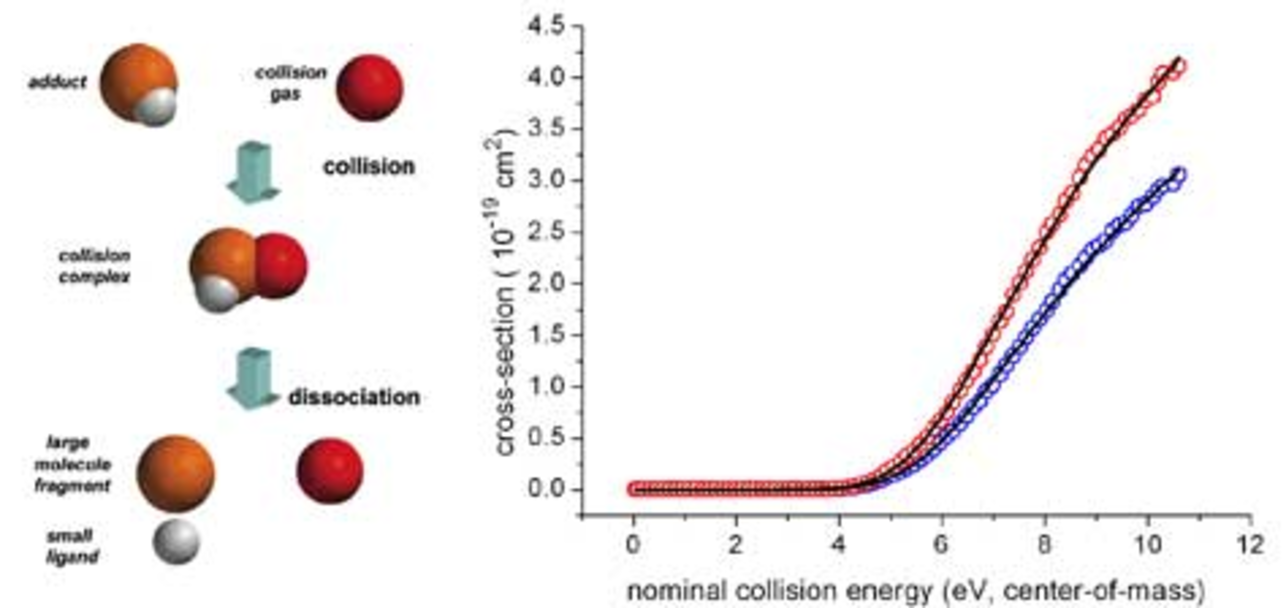Software
Motivation
Systematic determinations of ligand binding energies in medium-to-large-sized organometallic complexes have been rare, with methodological limitations playing a significant role in the paucity of quantitative data. We developed an operationally much simpler method for the extraction of thermochemical data from energy-resolved collision-induced dissociation cross sections, which is specifically designed for ligand binding energy determinations by tandem mass spectrometry.

Advantages of LCID
LCID: A program for simple fitting of energy-resolved reactive cross sections in Threshold Collision-Induced Dissociation (T-CID) experiments. Compared to previous methods available in the literature, the present method has three advantages:
- A more realistic treatment of the electrostatic potential for the approach of the ion to the collision partner leads to a better, nonempirical threshold function, allowing fitting of the cross section over the entire energy range rather than just the onset.
- Treatment of the kinetic shift with a new model for the density-of-states function eliminates the need for explicit entry of frequencies for the starting ion or the transition state without loss of accuracy relative to direct state counts.
- Data fitting using Monte Carlo simulation and a genetic algorithm.
Getting a copy of LCID
- Download here the Download Software End User License-Agreement (PDF, 747 KB)
- Send a signed copy to Prof. Peter Chen by
- Download instructions will be sent by e-mail
Available binary versions:
- Linux X86_64 (Intel or AMD with SSE2)
- Mac OS X (Intel with SSE2)
- Win XP SP2 (Pentium 3 or better)
Source code versions:
Building from source code requires at least a FORTRAN 90/95 compiler and GNU make
LCID also supports the following (optional) libraries:
- AMD Core Math Library (ACML) version 3.0 or newer
We recommend version 3.5.0 or better.
- Intel® Math Kernel Library (MKL) version 8.1.1 or newer
LCID also supports SSE2 / VMX / Altivec:
You will need a C compiler (gcc 4.1 is recommended) to take advantage of those features
Tested platforms include:
Linux X86_64, MacOS X (Intel), Darwin 8.9.1, Tru64 V5.1 alpha and HP-UX B.11.23 ia64